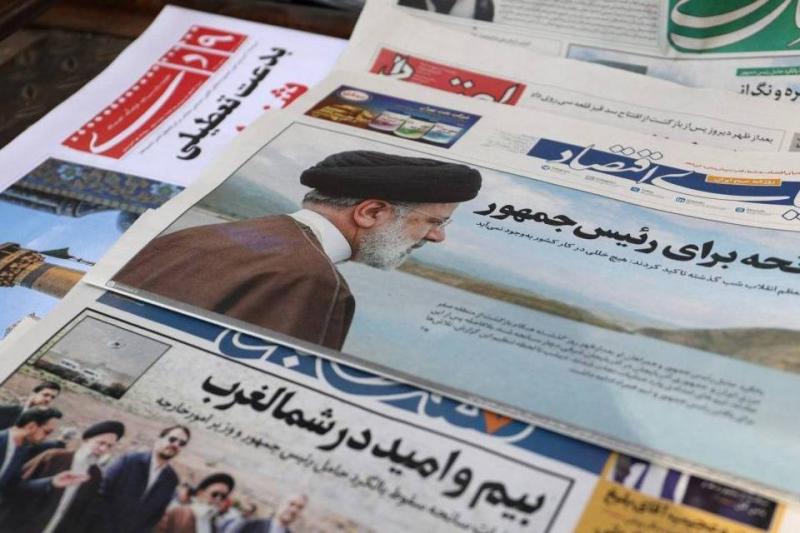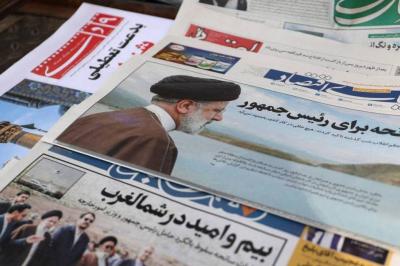The disqualification of candidates in Iran's presidential, parliamentary, and Assembly of Experts elections is a prominent feature of the electoral process in the country. It is known that the endorsement of candidates' qualifications after they meet constitutional requirements falls under the jurisdiction of the Guardian Council, which consists of 12 members, including 6 clerics who have the final say and are appointed by the Supreme Leader. Furthermore, candidates can only participate in the election race if they meet the specifications validated by this council for various constitutional and political reasons.
Regarding past presidential elections in Iran, there has been widespread disqualification of candidates. In the first presidential election in February 1979, there was no institution named the "Guardian Council," but the Ministry of Interior disqualified many candidates, notably the leader of the Mojahedin Organization, Massoud Rajavi. In all past presidential elections, the number of candidates approved by the Guardian Council has not exceeded 10 male candidates.
**Notable Disqualified Candidates**
The first prominent figure whose candidacy was rejected was engineer Mehdi Bazargan, the first head of state after the revolution, appointed by the founder Supreme Leader, Ruhollah Khomeini, and composed of religious liberals. Bazargan later ran for the presidency in 1985 but was disqualified on charges of liberalism.
Decades later, the rejection of one of the pillars of the revolution, Ali Akbar Hashemi Rafsanjani, from running in the 2013 presidential elections caused significant upheaval in Iran. No one expected the clerics of the Guardian Council to reject the man who had served as the military leader representing the founder Khomeini during the Iran-Iraq war, later becoming president for two terms, the first speaker of the Iranian parliament after the 1979 revolution, and playing a crucial role in choosing Ali Khamenei as Supreme Leader after Khomeini's death in 1989.
Among the notable candidates rejected by the Guardian Council is Mahmoud Ahmadinejad, who, despite having held the presidency for two terms and initially enjoying the Supreme Leader's full support, diverged from him in his second term. However, he did not heed the Supreme Leader's advice against running again in the 2021 elections, submitting his application to the Ministry of Interior, but was rejected by the Guardian Council.
Another high-profile official disqualified from competing against Ebrahim Raisi for the presidential seat in the 2021 elections was former parliament speaker Ali Larijani, who had previously served as Minister of Guidance, Chief of Staff of the Iranian Revolutionary Guards, and director of the state broadcasting organization appointed by the Supreme Leader.
The term "diplomatic sheikh" refers to former President Hassan Rouhani, who served five terms in parliament, two terms in the presidential palace, and three terms in the Assembly of Experts. He also chaired the central headquarters of Khatam al-Anbiya, the highest Iranian military headquarters during the Iran-Iraq war, as deputy commander of the armed forces and later became Secretary of the Supreme National Security Council. However, the Guardian Council rejected his eligibility and prevented him from participating in the Assembly of Experts elections.
**Sunni Presidential Candidate**
Former Sunni parliamentarian Jalal Jalalzada from Kurdistan province challenges articles 35 and 115 of the Constitution, which stipulate that presidential candidates must adhere to the country’s official sect, which is the Twelver Shia sect, and announces his candidacy for the presidential elections in Iran.
In a post on the "X" platform, Jalalzada wrote: "Unfortunately, Article 115 of the Constitution has deprived 17 million Sunnis of their citizenship rights regarding running for the presidential election. However, due to this article's contradiction with religious principles and the Universal Declaration of Human Rights and in defense of Iranian and Islamic identity, I announce my candidacy for the presidential elections."
Previously, prominent Sunni cleric Mowlavi Abdolhamid Ismailzehi called for the repeal or alteration of constitutional articles that prevent Sunnis from running for the presidential elections, emphasizing that the constitution “is not divine revelation... Lifting restrictions on presidential candidacy is a wise and logical opinion that aligns with the size of Sunnis in Iran," considering it to promote unity, fraternity, and security.
Article 35 of the Iranian Constitution outlines five conditions, including that presidential candidates must be from "religious and political figures who believe in the Islamic Republic and its official sect," which is Shia. Article 107 of the Constitution automatically disqualifies individuals from other religions and sects, including Sunnis, from candidacy for the Supreme Leader or even membership in the Assembly of Experts in Iran.
Paragraph 5 of Article 115 states that the President must adhere to the country's official sect (Shia), and Article 121 regarding the oath of office describes the president as the protector of the official sect (Shia). Article 2 states that the Islamic Republic of Iran is founded on the belief in "Imamate," continuous leadership, and ongoing scholarly interpretation by qualified jurists.




